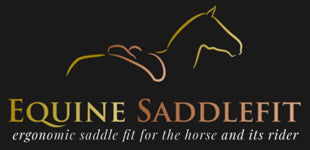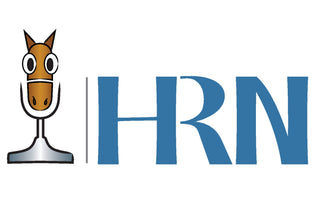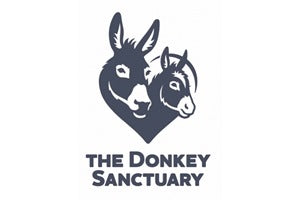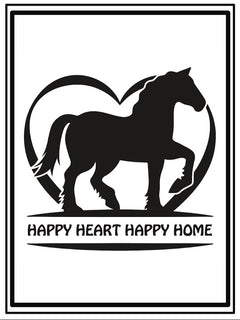What happens when a beloved icon falls from grace?
For years, Charlotte Dujardin was the face of dressage, the epitome of poise and partnership between horse and rider. But in 2024, a storm hit the equestrian world.
Videos surfaced showing her repeatedly using a whip on a young horse during training. The fallout was immediate and fierce, prompting debates about the treatment of horses in elite sports.
Dujardin’s actions didn’t just affect her reputation; they sent shockwaves across an industry already under scrutiny for animal welfare concerns.
This article aims to unpack what happened, why it matters, and where the horse industry goes from here.
Charlotte Dujardin: A Giant in Dressage
Few names command as much respect in dressage as Charlotte Dujardin. With multiple Olympic medals, world records, and international acclaim, her career has been a masterclass in equestrian artistry. Riding horses like Valegro, known to most of us as Blueberry, she redefined the sport with her fluidity, discipline, and sheer harmony with her mounts.
Her influence reached beyond competition. Dujardin inspired countless riders, advocated for more turnout for show horses, attracted mainstream media attention, and boosted public interest in dressage.
That’s precisely why the scandal hits so hard. Her pedestal was one built on admiration and trust.
The Incident
In July 2024, a video emerged showing Dujardin during a training session, repeatedly striking a horse with a lunge whip.
The footage, reportedly filmed several years prior, depicted her using the whip around the horse's legs, raising immediate concerns about excessive force and animal welfare.
The video was sent to the International Federation for Equestrian Sports (FEI) by a lawyer representing an undisclosed complainant. Upon receiving the footage, the FEI initiated an investigation into Dujardin's conduct.
Immediate Repercussions: Withdrawal from the Olympics
Facing mounting pressure, Dujardin voluntarily withdrew from the Paris 2024 Olympics and requested a provisional suspension pending the outcome of the investigation.
In a public statement, she expressed deep remorse, stating, "What happened was completely out of character and does not reflect how I train my horses or coach my pupils. However, there is no excuse. I am deeply ashamed and should have set a better example in that moment."
Official Sanctions: Suspension and Fine
In December 2024, the FEI concluded its investigation, imposing a one-year suspension on Dujardin, backdated to July 23, 2024. She was also fined 10,000 Swiss Francs (£8,886). The suspension prohibits her from participating in all activities related to competitions or events under the jurisdiction of the FEI or any National Federation.
Dujardin accepted the sanctions without appeal, stating, "I fully respect the verdict issued by the Federation for Equestrian Sports (FEI), released today."
Public and Industry Reaction
The equestrian community and the public reacted strongly to the incident. UK Sport suspended Dujardin's funding pending the investigation's outcome.
Additionally, she was dropped as an ambassador for the horse welfare charity Brooke, and sponsors such as KBIS and Equine LTS terminated their partnerships with her.
World Horse Welfare's chief executive, Roly Owers, commented, "This story is another salutary reminder of how vital it is that equestrians put the welfare of the horse first, all of the time, whether in the competition arena or behind closed doors."
The individual who released the video, represented by lawyer Stephan Wansing, stated that the motivation was to "save dressage." The whistleblower believed that exposing the incident was necessary to uphold the integrity and welfare standards of the sport.
Historical Context: Previous Incidents in Equestrian Sports
The Dujardin case is not isolated. In recent years, other equestrian figures have faced scrutiny for animal welfare violations. For instance, Danish rider Andreas Helgstrand was banned from the national team until 2025 after an undercover documentary revealed unacceptable training methods at his stables.
These incidents highlight ongoing concerns about training practices and the treatment of horses in competitive equestrian disciplines.
Impact on Sponsorships and Endorsements
The scandal had immediate financial repercussions for Dujardin. Sponsors and partners distanced themselves, leading to a loss of endorsements and funding. The termination of these partnerships underscores the importance sponsors place on ethical conduct and animal welfare in sports.
Broader Implications for the Sport
The incident has prompted a broader conversation about the use of training aids, such as whips, in equestrian sports. While whips are banned in international dressage competitions, they are permitted in training sessions. This discrepancy has led to calls for more consistent regulations and oversight to ensure horse welfare is prioritized at all times.
Animal welfare organizations have used the incident to advocate for stricter regulations and better enforcement of existing rules. The case has become a catalyst for discussions on how to balance competitive training with humane treatment of horses, emphasizing the need for transparency and accountability in the sport.
Governing bodies like the FEI and British Dressage have reaffirmed their commitment to horse welfare. The swift action taken in Dujardin's case demonstrates a zero-tolerance approach to misconduct and sets a precedent for handling similar incidents in the future.
The media extensively covered the scandal, with widespread public discourse on social media platforms. Opinions varied, with some expressing disappointment in Dujardin's actions and others calling for systemic changes in the sport to prevent future occurrences.
Legally, the case highlights the responsibilities athletes have under the FEI Code of Conduct for the Welfare of the Horse. Ethically, it raises questions about the pressures of competitive sports and the potential for lapses in judgment, even among top athletes.
Similar issues have arisen in other sports involving animals, such as horse racing and the modern pentathlon. These comparisons underscore the universal need for stringent welfare standards and the challenges of enforcing them across different disciplines.
Future of Equestrian Sports
The Dujardin scandal serves as a wake-up call for the equestrian community. It emphasizes the necessity for ongoing education, stricter enforcement of welfare standards, and a cultural shift towards prioritizing the well-being of horses over competitive success.
Charlotte Dujardin's fall from grace is a poignant reminder of the importance of ethical conduct in sports. While her achievements in dressage are undeniable, this incident has cast a shadow over her legacy and prompted critical reflection within the equestrian world.
Moving forward, the industry must embrace transparency, enforce welfare standards rigorously, and foster a culture that places the health and dignity of horses at its core.
FAQs
What led to Charlotte Dujardin's suspension?
A video surfaced showing Dujardin excessively whipping a horse during a training session, leading to her suspension by the FEI.
How long is her suspension?
She received a one-year suspension, backdated to July 23, 2024, making her eligible to compete again in July 2025.
Did she face any financial penalties?
Yes, Dujardin was fined 10,000 Swiss Francs (£8,886) by the FEI.
What has been the reaction from sponsors?
Several sponsors, including KBIS and Equine LTS, terminated their partnerships with Dujardin following the incident.
Has this incident led to changes in equestrian sports?
The scandal has intensified discussions about horse welfare and may lead to stricter regulations and oversight in training practices.
What has Dujardin said about the incident?
She expressed deep remorse, stating that the incident was out of character and that she is "deeply ashamed" of her actions.




























